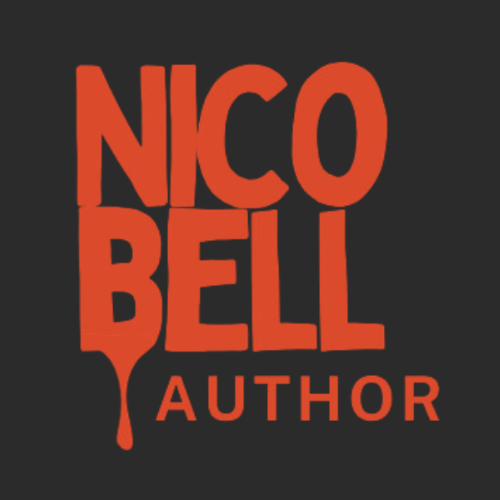Horror Author Clint Smith #Interview
Horror Author Clint Smith
1. Thank you for joining me! Let’s talk a little about what makes you different as an author. If you had to define your “brand” in a couple of sentences, what would you say?
I’m really grateful for this opportunity of this conversation, Nico. While I’ve been practicing (self-aware of it or not) to be a writer most of my life, I only entered the publishing dimension ten years ago, so I’m still relatively new to the industry’s scaffolding and its more notable residents. Where proximity is concerned, I’m not from the coasts—my writing is informed by the Midwest, a place poised in the middle. There is, of course, a pro-con duality in this.
I don’t possess a pedigree of the elite, literary aesthete, and my work is typically void of an attractive, commercial shock factor. I’m neither a “slick” or a “pulp.” In short, I am still somewhat of an outsider, and that provides a certain redeeming dye to my writing.
2. You’ve published a ton of short stories over the years. What tips would you give a newbie writer trying to get their short story published?
You have to do your homework a bit here. You also have to maintain the armor of your literary ambitions.
In his book, Best Words, Best Order, Stephen Dobyns asserts that young writers must preserve a certain amount of gall. Established writers, Dobyns suggests, “[A]re more concerned with what they can’t do than with what they can. They are afraid of appearing inadequate so they constantly censor themselves.” Quite simply, “Nobody told John Keats he couldn’t be a poet and so his gall remained in tact.”
It was Saul Bellow who said that a writer is a reader moved to emulation. I would compile the short-story collections of four or five (relatively contemporary) writers whose aesthetic and work ethic you’d like to emulate; I’d do some research on where these stories were originally published and begin to create a “hit list,” of sorts. Start submitting at the top, where the “pros” reside. Then if you get shot down, no big deal—move on the next tier. Be practical, but also demonstrate some gall.
3. Congratulations on your novella When It’s Time for Dead Things to Die! What inspired this plot?
Very kind of you—thanks! In my twenties, I spent a lot of time in the “Region,” in and on the outskirts of Chicago. This period was critical, as I was not only completing my culinary arts degree in the city, but I was working in the foodservice industry. This period was a rather liminal one—a part of my life where I was encountering some questionable characters while simultaneously questioning my own character.
4. How autobiographical is your work?
Though I do make strides in my writing to slip into the “skin” of characters and situations outside my own experiences, I often feel like those exercise ring with a wince-inducing flimsiness. There are other, more talented, writers who are better imposters than me. I try to find the truth in the misguided chapters my own life with the intent of not only reconciling some of those missteps, but making better connections with friends and other writers.
So how autobiographical is my work?: Quite, I’d say.
5. Where did you love of horror come from?
Reading, most likely, as a little kid. I’ve tried to do some backtrack evaluation of this same question with no accurate success. With exception of the more banal citations (Universal Monster movies, the Halloween season in the Midwest, my love of late-night, "creature feature" horror hosts), my memories continually return to the Biblical image of Samson being tortured by the Philistines—his hair hacked, his eyes gauged from their sockets. And in a last-gasp plea, he entreaties the supernatural to imbue him with a final display of power, cracking the pillars, demolishing the temple of Dagon, wiping out his enemies.
That was some heavy shit as a kid (not to mention the thematic ambiguity of requesting a supernatural entity for the power to kill ones adversaries, and having that power granted—those images and ideas were particular affecting).
Now, my love of horror is braided with a bit of tension: a sort corner-of-the-eye vigilance with not losing the things I love. Wondering how people, characters, cope with darkness—sometimes of their own making, sometimes not—preoccupies me.
6. When you’re not writing horror, what are you up to?
Owing to my background, my current vocation is culinary arts and teaching. In addition to being a chef-instructor at a nearby high school, I teach cooking classes to the public at a downtown bed-and-breakfast called The Nestle Inn.
7. What is next for you? Anything in the works?
My next short story collection, The Skeleton Melodies, is due out by Hippocampus Press some time in 2020 (the publisher is holding on cover artwork from the brilliant Dan Sauer Design). As I’m composing these responses, I’m finalizing a short story titled “Pregnant Women and People With Heart Conditions” which, as the title suggests, involves grim events around a roller coaster during the after-hours of an amusement park. Three or four more short and long stories are chambered for completion before summer. It’s pleasantly hectic here in front of the computer.
8. Where can people find you online?
9. This is your chance to say anything that wasn’t asked. Closing thoughts?
Nothing I can think of—it’s been a pleasure corresponding with you, Nico!
BUY WHEN IT’S TIME FOR DEAD THINGS TO DIE HERE

